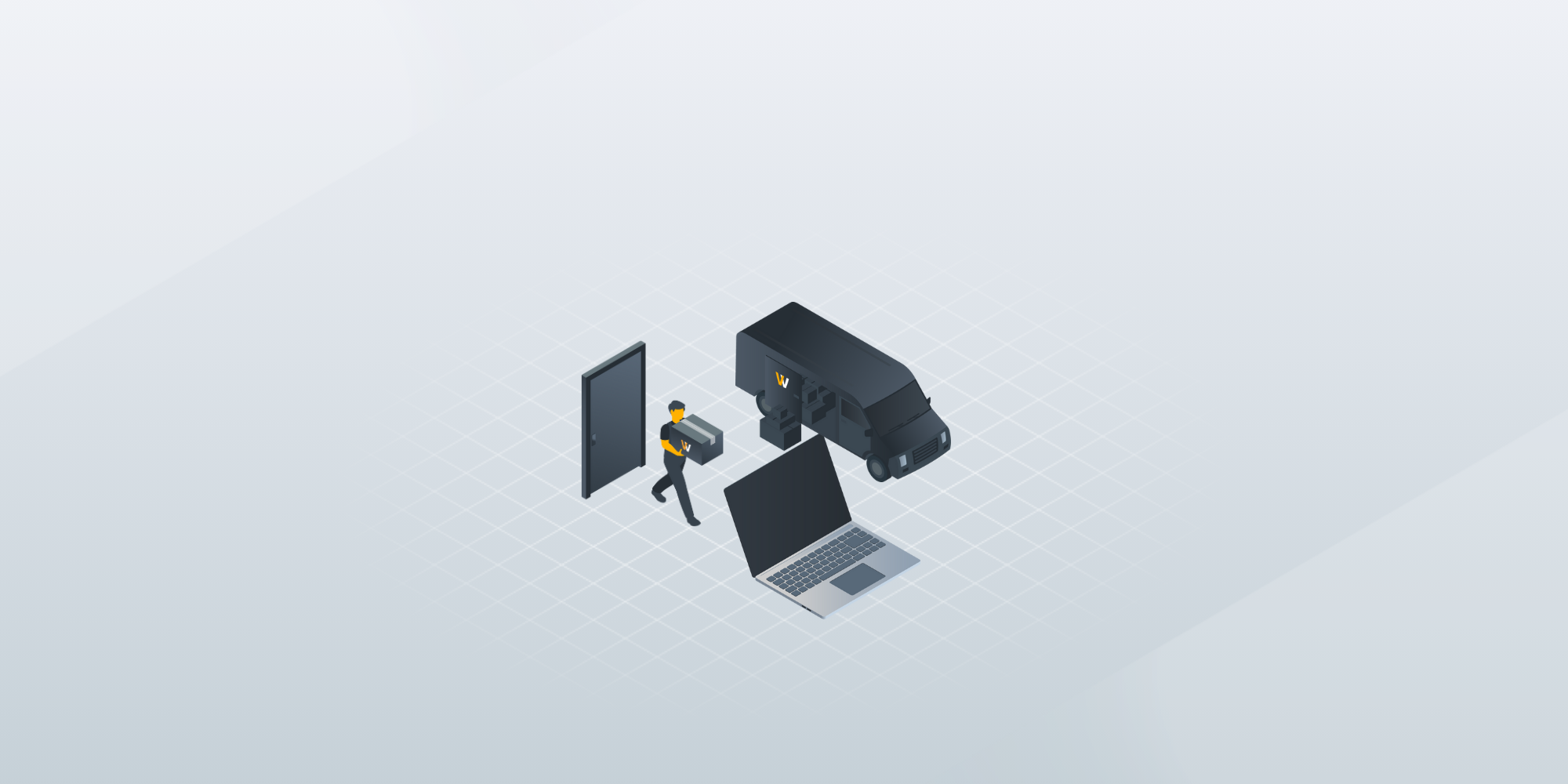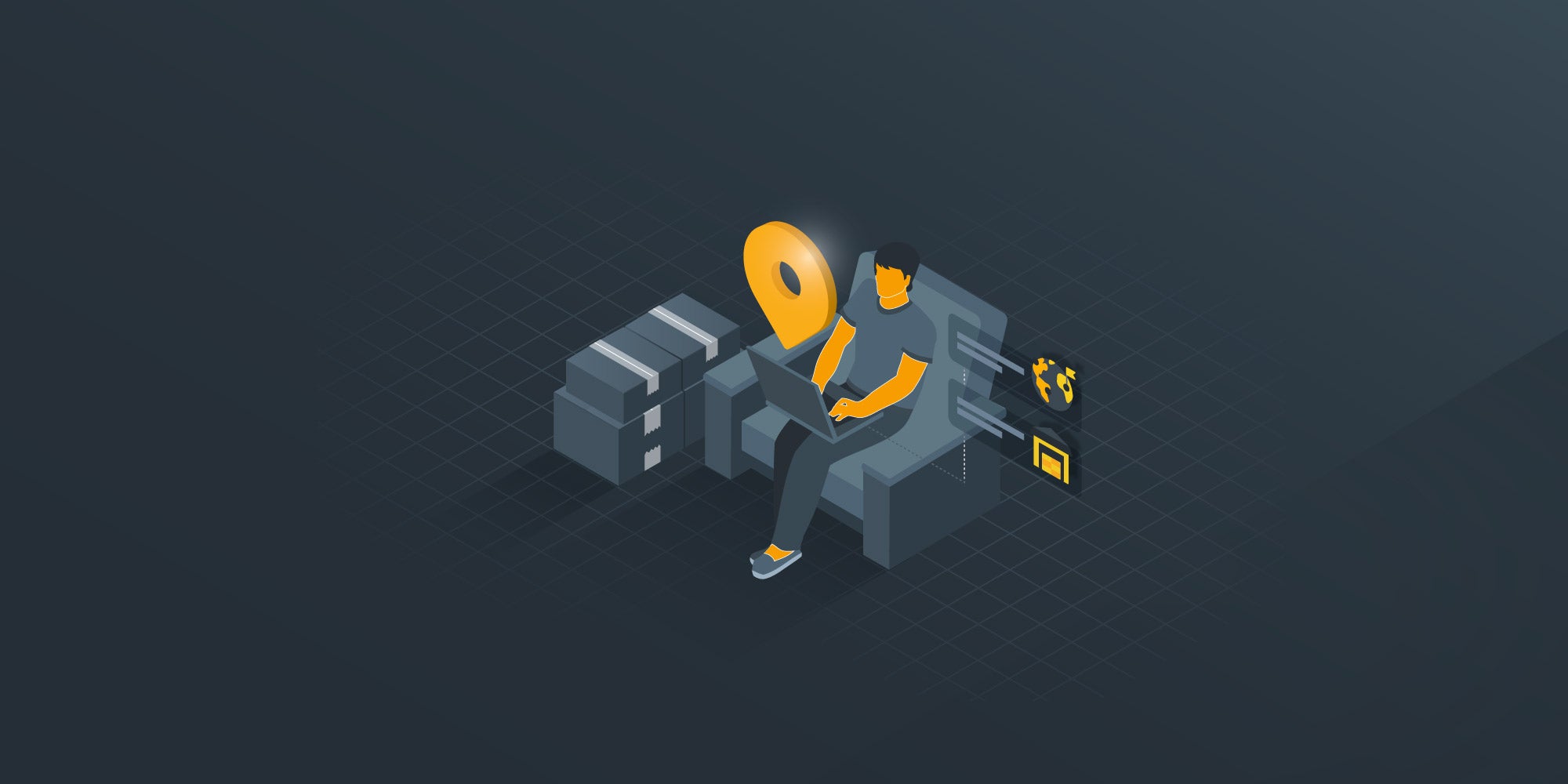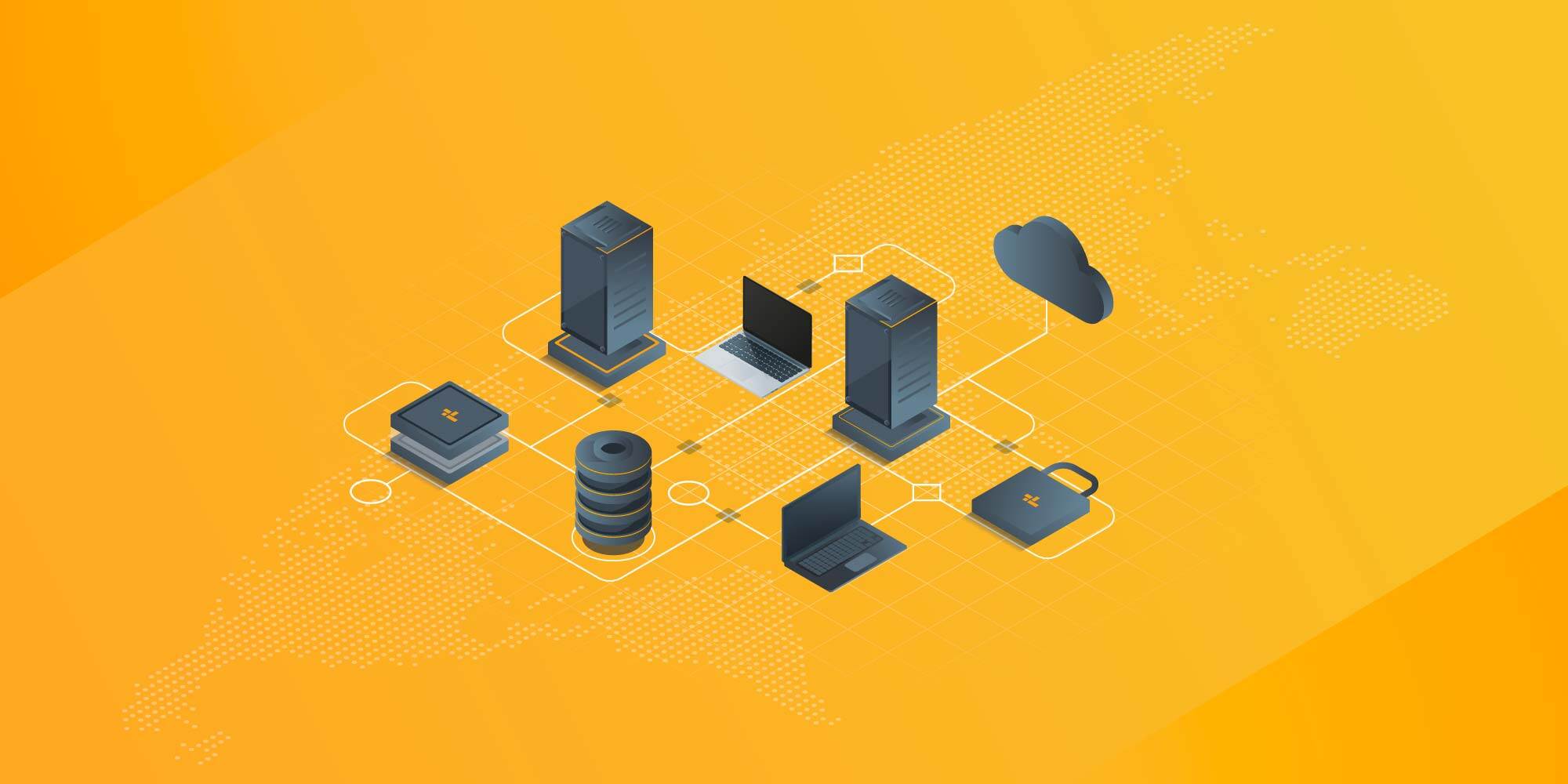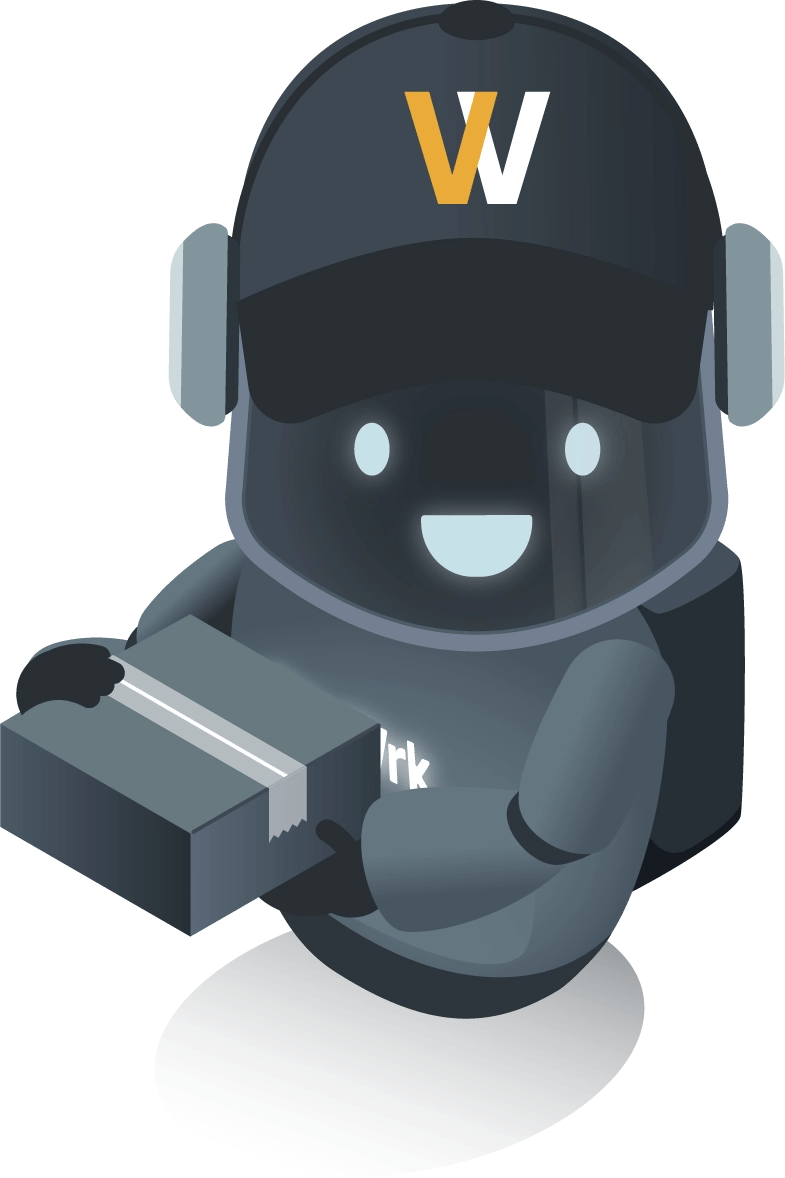Keeping IT real: A human-centered approach to IT with Tim Fernihough
 Mara Quintanilla
Mara Quintanilla
Flexibility in work environments is now the norm around the world. Whether workforces operate fully remote or under a hybrid model, work is more flexible than ever. However, keeping up with the necessary IT infrastructure and ensuring equipment runs smoothly wherever employees are is challenging, even for the most seasoned IT experts.
That's why we've created "keeping IT real: Stories from real people in tech," a series of interviews where we dive into the world of IT asset lifecycle management, bringing you firsthand stories covering every stage of the device lifecycle straight from IT professionals. Let's keep IT real!
Our first guest: Tim Fernihough
To kick off this series, we talked to a longtime GroWrk customer and friend, Tim Fernihough. As co-founder and Senior Director of Standards, Compliance & IT Services at Orium, Tim spends his time between IT strategy, corporate governance, and project delivery oversight.
Tim has been at Orium for 17 years and has seen the company grow from just two people –himself and Jason Cottrell, Orium's CEO– all the way to 250 employees. During this time, Tim has seen a different set of challenges at every stage of scaling the company. One thing that remains constant is his empathy and trust towards his team, making sure their experience is always humane within the otherwise rigid structure of IT.
We spoke with Tim to see what his day-to-day as Senior Director looks like, from managing equipment to creating policy. He shares his IT philosophy and best practices to make IT as human as possible.
A day in the life of a Senior Director
Tim's role is a unique combination of IT strategy, corporate governance, and project delivery oversight. As he puts it, "I'm a bit of a unicorn." Having started as the company's first developer, Tim transitioned into managing internal IT while maintaining a consultative role in project delivery. He also dabbles in managing equipment for his team with the help of GroWrk.
"I have been called upon to support the business in a unique way by running IT, but also providing a delivery oversight function to the business that is more about the business-level success of the products that we launch rather than the technical success," he explains. "I have a lot of experience, so it would be unfortunate not to take advantage of that and support the business-level quality of the products that we launch."
Orium became a GroWrk client in 2021 after going remote first. For Tim, it was crucial to provide remote employees worldwide with an onboarding experience consistent with what it would be in the headquarters in Canada.
"I believe it's very important to make sure that people have the right tools to do their job," he says. "In our line of work, that means a proper computer, equipment, and peripherals, going beyond just IT stuff. The GroWrk portal and the services that GroWrk offers became integral to ensuring that my growing fleet of remote people had a fairly consistent experience with those in Canada."
The reason behind wanting a consistent IT onboarding experience for employees worldwide is that it helps build trust. "We have a couple hundred employees across a number of countries, and I have not forgotten what it's like to be in the role of those people," Tim explains.
"I used to work at a bank, and I know what it's like to not even be able to install a browser plugin without IT being there to help. So, when I built IT, I thought to myself, 'All right, I'm never gonna forget what it's like to be at the front lines, to be in the roles of the people whose equipment and security I'm managing' and that has helped me create the policy that governs the organization."
Tim is aware that IT decisions impact how employees carry out their work. That's why this empathetic approach helped him create policies that protect the business while respecting employee privacy and autonomy.

Key challenges in IT leadership
Because Tim wears many hats in the organization, he has been trying to operationalize a large component of his day-to-day over the past two years. However, the road to operationalizing a role as unique as Tim's has been everything but simple. We asked Tim for his three main pain points in this process, and he sums it up into the following:
- Letting go of processes he built and trusting others to manage them.
- Balancing multiple hats: Corporate governance, IT leadership, and subject matter expert.
- Finding time to teach and empower others rather than just doing everything himself.
Tim explains that letting go of how he ran something and giving it to someone else has been more challenging than expected. He knows the level of excellence to which he will run a process, but that doesn't mean someone else won't do a great job, even if it's done differently.
The role of a "unicorn" is complex, so sometimes that can cause confusion for his team: "Sometimes I'm wearing the subject matter expert hat because I know the most about security and privacy. Sometimes I'm wearing the Director of Standards and Compliance hat when I'm creating the framework around enforcing the rules that have been set. Sometimes I'm wearing the leader of IT hat when I'm making decisions and I think it's blurry," he explains.
Tim mentions that sometimes he retreats into what he knows best, which is to execute. However, he recognizes that he would like to teach more and allow others to execute in his place.
When it comes to the easiest and hardest things in his job, Tim explains that saying no is the hardest, especially when dealing with the tools his team needs to move forward. The easiest thing, however, is respecting humanity. He understands that when someone has a request, it's coming from a fellow human trying to do their job.
One of the more frustrating aspects of the day-to-day lives of someone in IT is when end users disobey the rules or go silent after submitting a ticket. "I find that very challenging because we're a small team with three people. We support 250 people. Our time is precious and needs to be spent as such," he says.
However, if he could have a magic button to solve any problem in IT, Tim would focus on one that could add and take away the tools and software that each role needs without having to build specific use cases and exceptions. "I would love to have that because it would mean people could be effective quicker, and I can protect the business quicker when somebody leaves," he states.
Scaling IT in a growing organization
As Orium has expanded, it has faced a variety of new challenges. Tim explains that they didn't have to standardize everything when they were still small because they wouldn't know if a challenge would present itself more than once. For Tim, it was important to see the nuances and variants of a challenge before creating a policy or procedure. However, there were times when a challenge didn't need to occur more than one time to know that a policy was required.
Tim recalls that one of the earliest policies and procedures that Orium put in place was around equipment management. "I still remember the day around 2011 when I was like, 'Okay, we can't have personally-owned computers anymore.' I can't install the necessary software on people's computers and still respect their privacy. So it's time that everybody gets a company machine," he shares.
"Anybody new starting at the company would come in and say, 'This all makes sense. You're supposed to have these things in place,' but for the people that were there already, it was a transition. Some people found it easier, some people found it more difficult."
Recently, Orium acquired a Mexico City-based company, and Tim is facing the challenge of creating or adapting policies for the people who are now part of the company. "I'm once again having to build that trust and help people understand why it's not safe to proceed the way it always was. Now, I have the lessons from 10 or 15 years ago to think about how I can do it again for this new entity that we've acquired," he says.

He adds that the world is different now than 15 years ago. Technologies have improved, and there are better ways to do MDM or security and still protect end users' privacy without becoming the admin who sees everything on the employee's computer.
Tim's key is balance: "I prefer to trust people. But at the same time, that's not enough if I have to stand up in front of an investor or a client and say how I protected their data. I find that over the last 15 years, I've been able to strike that balance. The question now is: How do I scale that balance?"
"The challenges are evolving and new ones are presenting themselves as we grow. I know what it's like to be in those people's shoes, and I find open transparency and open communication, such as 'Hey, I'm the guy that goes to court if there's ever a breach.' The reason I'm able to allow team members to feel empowered and respected is because of the balance I've chosen to strike over the years."
Best practices for IT security
Tim emphasizes that trust is the cornerstone of the relationship between IT departments and employees. He believes in empowering employees by trusting them to follow the established rules while also maintaining the capacity to monitor for compliance. This approach gives staff a sense of responsibility and confidence without feeling constantly scrutinized.
However, Tim also stresses the need to use company-provided computers and software to ensure security. He points out the risks of using unauthorized devices or applications because of unknown vulnerabilities or breaches that could go undetected, jeopardizing the organization's security.
For Tim, policies are a blueprint for efficiency and safety. His IT philosophy focuses on being thoughtful, empowering employees, and building trust. He operates on the principle that everything should have a purpose, so he likes to observe before carving out policies. He emphasizes that client and company data security are paramount, but not without limiting employees in how they work. On the contrary, he focuses on giving employees what they need to work efficiently.
Tim's IT philosophy focuses on the following principles:
- Everything has a purpose - we don't believe in policy for the sake of policy.
- Our policies are designed to protect data - both the company's and the client's.
- We want to provide you the best tools we can so you can be the best version of yourself.
In short, while trust and agency are key, they must be balanced by adhering to protocols designed to protect both the employees and the company.

Looking to the future of IT
As for the future of IT, Tim emphasizes the importance of embracing AI and adapting to the continued prevalence of remote work. He also predicts a continued shift towards more human-centric approaches in IT management.
"AI is not going to take our jobs, but someone who knows how to use it better could. So I think it's about not being afraid of embracing it and understanding how it can make things better both within our tools and the tools that we subscribe to in our own work and how we serve our clients," Tim shares.
Regarding remote work and managing devices for distributed teams, Tim anticipates that the employee experience will continue to improve and take into account their needs: "I think that it would be naive to assume that we don't continue to work remotely, that we don't continue to build our processes and experiences around people working from home. I'm seeing a lot more human approaches to recognizing how important team members are to the business," he remarks.
"I think we'll continue to see the desire to improve the employee experience, even in how we handle things like computer repairs. I don't just send you to an Apple store. I don't take your tool away from you. I will ship you a whole new computer so you can move over right away."
Wrapping up
Tim's principles highlight the crucial role of IT in fostering a supportive, efficient, and secure work environment. As companies continue to navigate the shift towards flexible work and implementing new technologies like AI, these ideas can help other IT leaders adapt to changing times.
Successful IT leadership in today's flexible environment requires a delicate balance of technical expertise, strategic thinking, and empathetic management. By focusing on these areas, IT leaders can help their organizations build the policies and procedures to keep their data safe while fostering a positive environment for their workers.
If you are looking to scale your organization and easily manage IT equipment throughout its lifecycle, check out GroWrk. Book a demo to learn how we simplify global onboarding for startups and Fortune 500 companies alike.





